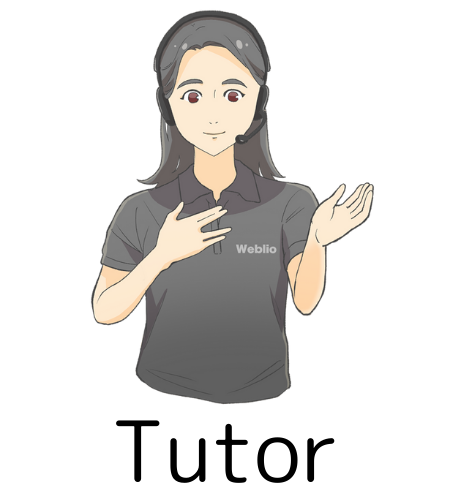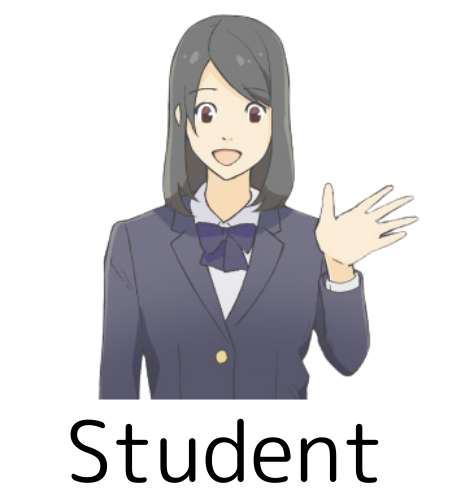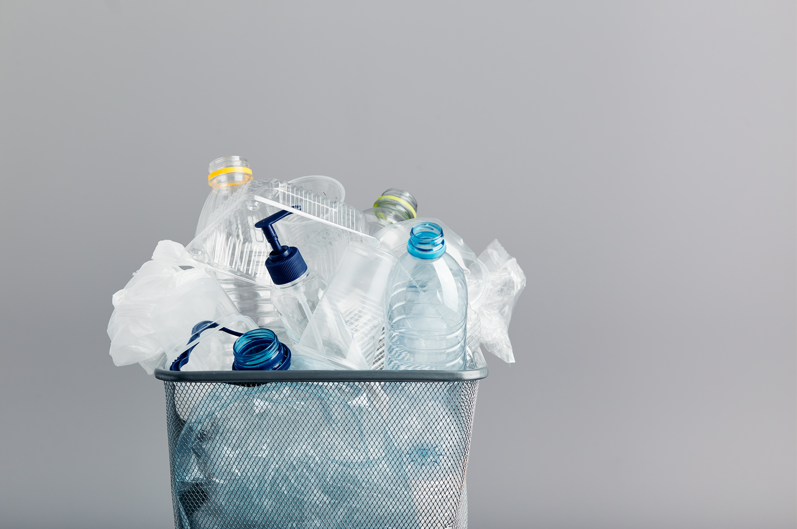Part A Introduction & Ice break

Part A_1 Introduction & Ice break
Let’s introduce ourselves to each other.
自己紹介をしましょう。
My name is ________. What is your name?
Part A_2 Introduction & Ice break
I am ________. Nice to meet you.


Part A_3 Introduction & Ice break
Nice to meet you too, ________. What’s your plan for this weekend?
Part A_4 Introduction & Ice break
It’s ________.


Part A_5 Introduction & Ice break
I see. Thank you for answering. Let’s begin our lesson!
Part B Vocabulary
Let’s check the meaning and pronunciation of English words.

Part B_1 Vocabulary
We will read aloud the words below. Please repeat after me. I will check your pronunciation.
(Please send the mispronounced words and phrases to your student.)
講師の真似をして単語を発音しましょう。
Part B_2 Vocabulary
|
innocuous
無害の
|
|
|
degrade
退化させる、分解する
|
|
|
chomp down on
音を立てて食べる
|
|
|
stabilizer
安定剤
|
|
|
hydrogen
水素
|


Part B_3 Vocabulary
Now, let’s review some words from part B_2.
(Please review the mispronounced words and expressions from part B_2.)
復習しましょう。
Part B_4 Vocabulary

Part C Reading
Read the passage and check your pronunciation. Make sure you understand the content.

Part C_1 Reading
Please read aloud the passage below. I will check your pronunciation and intonation.
(Please send the mispronounced words and phrases to your student.)
文章を読んでください。
Part C_2 Reading
Tiny Helpers might Save the Planet

A university scientist investigates how one thing can consume another while still serving other purposes. “We are all aware that plastic waste is a major issue in the environment, particularly in the marine environment,” the scientist said. “We discovered that mealworms, these tiny, innocuous insects found pretty much everywhere, can eat and degrade a variety of plastics.”
In 2015, the ability of these worms to consume polystyrene was discovered, sparking an entirely new field of study. The scientist’s initial discovery was that mealworms chomp down on polyethylene. The mealworms are chasing the energy produced by dissolving the polymer bonds in the plastic because it contains no nutrition. They achieve this by using a potent bacteria in their intestines that converts most plastic into only hydrogen and carbon. However, two ingredients used in the production of plastics, stabilizers and plasticizers, are difficult to degrade.
The scientist is currently attempting to understand how a mealworm accomplishes its tasks. “You can throw your plastic in, and hopefully it’ll all break down,” she says.


Part C_3 Reading
Now, let’s review some words and expressions from part C_2.
(Please review the mispronounced words and expressions from part C_2.)
復習しましょう。
Part C_4 Reading

Part D Comprehension check
Let us check your understanding of the passage.

Part D_1 Comprehension check
I will ask the following questions. Please answer based on the passage. I will check if your sentences are complete and if the grammar is correct.
(Please send the sentences that need grammar corrections to your student.)
講師が質問するので音読した文章の内容に沿って答えましょう。

Part D_2 Comprehension check
| 1. | According to the passage, how can mealworms contribute to solving environmental issues? |
Part D_3 Comprehension check
| Answer: |


Part D_4 Comprehension check
| 2. | What do mealworms get from plastic, despite the fact that it contains no nutrients? |
Part D_5 Comprehension check
| Answer: |


Part D_6 Comprehension check
| 3. | What are the ingredients used in the production of plastic that are difficult to degrade? |
Part D_7 Comprehension check
| Answer: |


Part D_8 Comprehension check
| 4. | What situation does the scientist hope to be in when we throw plastic? |
Part D_9 Comprehension check
| Answer: |


Part D_10 Comprehension check
Now, let’s review your answers.
(Please review your student’s answers by sending the correct answers in complete sentences. After that, ask your student to read aloud his or her corrected answers.)
復習しましょう。
Part D_11 Comprehension check

Part E Fill in the blanks
Complete the sentences by filling in the blanks with the correct words.

Part E_1 Fill in the blanks
Now, you will make sentences by filling in the blanks using the words you learned.
(Please send the sentences that need grammar corrections to your student.)
習った単語を使って文章を作りましょう。
Part E_2 Fill in the blanks
innocuous
degrade
stabilizer
chomp down on
hydrogen
| 1. | __________ make plastic strong. |
| 2. | To make water, combine __________ and oxygen. |
| 3. | Politicians try to make __________ speeches in order not to offend any of their supporters. |
| 4. | A caterpillar __________ cabbage. |
| 5. | Plastic is one of the materials that are difficult to __________. |


Part E_3 Fill in the blanks
Now, let’s review your answers.
(Please review your student’s answers by sending the correct answers in complete sentences. After that, ask your student to read aloud his or her corrected answers.)
復習しましょう。
Part E_4 Fill in the blanks

Part F Topic-related questions
Answer the questions related to the topic with your own reasoning.

Part F_1 Topic-related questions
Please answer the following question. Give at least one reason to support your opinion. I will check if your sentences are complete and if the grammar is correct.
講師が質問しますので答えましょう。少なくとも1つの理由を述べましょう。

Part F_2 Topic-related questions
| 1. | What do you think we can do in our daily lives to help reduce plastic waste? |
Part F_3 Topic-related questions
| Answer: | ||
| Because |


Part F_4 Topic-related questions
| 2. | What do you think would be a better alternative to plastic? |
Part F_5 Topic-related questions
| Answer: | ||
| Because |


Part F_6 Topic-related questions
Now, let’s review your answers.
(Please review your student’s answers by sending the correct answers in complete sentences. After that, ask your student to read aloud his or her corrected answers.)
復習しましょう。
Part F_7 Topic-related questions


Part F_8 Topic-related questions
Now, let’s answer the following questions. Your answer should start with “Yes/No”. Give at least one reason to support your opinion. I will check if your sentences are complete and if the grammar is correct.
講師が質問しますので答えましょう。回答は”Yes/No”から始め、少なくとも1つの理由を述べましょう。

Part F_9 Topic-related questions
| 1. | Do you think that making use of mealworms is the most effective way to help solve the issue of plastic waste? |
Part F_10 Topic-related questions
| Answer: | (Yes, I do. / No, I don’t.) | |
| Because |


Part F_11 Topic-related questions
| 2. | Do you often use plastic bags? |
Part F_12 Topic-related questions
| Answer: | (Yes, I do. / No, I don’t.) | |
| Because |


Part F_13 Topic-related questions
Now, let’s review your answers.
(Please review your student’s answers by sending the correct answers in complete sentences. After that, ask your student to read aloud his or her corrected answers.)
復習しましょう。
Part F_14 Topic-related questions

Part G Free talk
Talk about the following topics.

Part G_1 Free talk
Let’s do a free talk about the following topics.
(Please do a free talk if you have time left.)
フリートークをしましょう。

Part G_2 Free talk
Do you recycle plastic items? (plastic bottles, plastic packaging, etc.)
What items do you think can be recycled or reduced?
What items do you think can be recycled or reduced?
Part G_3 Free talk
| Answer: |


Part G_4 Free talk
Do you take any actions toward the SDGs or the environment?
Tell me anything you can think of.
For example: bring your own reusable bag when shopping
Tell me anything you can think of.
For example: bring your own reusable bag when shopping
Part G_5 Free talk
| Answer: |
